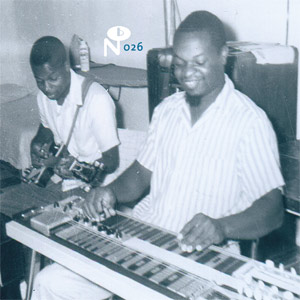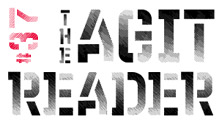
Downriver Revival
Local Customs
Compared to these days, where the marginalizing of independent music seems merely an aesthetic choice and almost a badge of honor, small record labels in the ’50s and ’60s had to contend with being segregated by race, secularity and mores, in addition to whether or not what they were producing was commercially viable. And forget cassette four-tracks or ProTools, the equipment needed to cut a record back then was enough to fill half a room.
Still there’s almost a romantic notion to imagining those souls toiling a way on industrial-sized consoles and reels of 1/4" and 1/2" tape just to cut a 45 for distribution in a 50-mile radius. Thinking of so many 7-inch slabs of vinyl lost to the sands of time, never unearthed, even by eBay collector scum, it’s difficult to fathom. Fortunately, the Numero Group label has made it its raison d’etre to bring such treasures to the light of day. Its latest, and perhaps most interesting discovery, is the work of basement studio Double U Sound and its imprints, Revival, Compose, Cass and Rock Solid.
In the late ’60s, in Ecorse, Michigan, seven miles south of Detroit, Felton Williams, an electronics wiz working at the small city’s Ford plant, converted his basement rec-room into a makeshift studio at the urging of one of the plant’s janitors, Perry Hornvath, who himself was eager to cut a side. Intermittently for a number of years—between 1967 to 1981—Williams opened his studio doors to anyone willing to enter (and sign over rights to the recording), while at the same time soliciting contributions from coworkers and his fellow churchgoers. It was the latter that ended up being the talent pool, as the Church of the Living God was connected to congregations in Toledo and elsewhere. It is at the church that Williams learned to play steel guitar and where he found protege Calvin Cooke, who would go on to even greater success, especially in recent years when he was rediscovered by Robert Randolph.
Numero’s Group compendium, on new imprint Local Customs, of the studio’s output, Downriver Revival—most of which was never pressed to record—is about as comprehensive as it gets. In addition to the 24 tracks presented on the CD proper, the included DVD contains every recording from Williams’ collection, as well as a short documentary of Numero label head Rob Sevier interviewing the record’s subject matter. But just concerning one’s self with the two dozen cuts of the compilation shows the label’s care in paring down this massive wealth of material. Williams may have predominantly concerned himself with the secular, but most songs here spill out of such confines. Shirley Ann Lee’s “There’ a Light,” the leadoff track, is a soulful reverie that burns with a belly fire divined from more than just the spiritual. The Revelations’ “Take Care of Us” may once again address the high above, but it’s atop a groove that precipitates soca and Desmond Dekker. Similarly the untitled jam from Bobby Cook & the Explosions, taken from one of the few sessions not done at Double U, is an instrumental brimming with soulful funk. And the Apostles of Music’s take on “Wade in the Water” similarly packs an R&B punch, whatever the intent may have been at the time. But the real revelation here is “Running Mod,” a garage nugget of Roky quality from Mikado, Michigan’s Young Generation that seems out of place even amongst this mixed bag.
Given the tone of much of the CD’s liner notes, it’s hard to tell if even Numero realizes what they’ve gotten a hold of here. This record is laced with a seismic energy— be it derived from something heavenly or something else—that seems contrary to the casualness of the environment that created it. I mean, Numero has unearthed remarkable stuff before, with records like the Capsoul comp, but Downriver Revival truly came from nowhere. Call it divine intervention, fate or whatever, but we’re blessed to have this music once again available.
Stephen Slaybaugh
PAST PERFECTS
Death, ...For the Whole World to See
The Notorious B.I.G. Ready to Die
Zero Boys, Vicious Circle and History Of
Volcano Suns, The Bright Orange Years and All Night Lotus Party
Miles Davis, Kind of Blue
Swervedriver, Raise and Mezcal Head
Flipper, Generic, Gone Fishin', Public Flipper Limited, and Sex Bomb Baby!
Pavement, Brighten the Corners: Nicene Creed Edition
The Grifters, Ain't My Lookout
Blue Ash, No More, No Less
The Jesus and Mary Chain, The Power of Negative Thinking
New Order, The Collector's Editions
Kevin Ayers, What More Can I Say?
The Clash, Live at Shea Stadium
